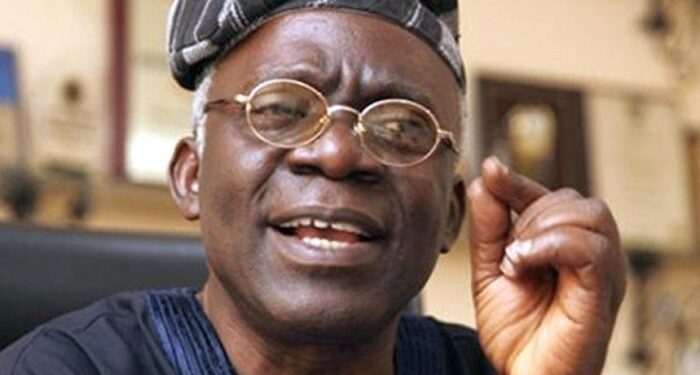Human rights lawyer and Senior Advocate of Nigeria Femi Falana has called on the Federal Government to intervene in the escalating dispute between Dangote Refineries and the Nigeria Union of Petroleum and Natural Gas Workers over alleged anti-union practices.
Falana condemned Dangote Refinery’s reported requirement that newly recruited drivers sign agreements prohibiting them from joining existing unions in the oil and gas industry, describing the practice as a violation of both domestic and international labor laws.
The legal intervention comes as NUPENG has directed its members to embark on an indefinite strike beginning Monday, September 9, 2025, in protest against what the union characterizes as Dangote Petroleum Refinery’s systematic attempt to prevent workers from exercising their constitutional right to unionize.
In a statement released on Sunday, Falana argued that the refinery’s anti-union policy violates multiple international agreements to which Nigeria is a signatory. He specifically cited the International Labour Organisation’s Freedom of Association and Protection of the Right to Organise Convention of 1948, and the Right to Organise and Collective Bargaining Convention of 1949.
The senior advocate also referenced violations of the United Nations Universal Declaration of Human Rights, the International Covenant on Economic, Social and Cultural Rights, and the International Covenant on Civil and Political Rights, emphasizing Nigeria’s legal obligations under these international frameworks.
Falana called for immediate regulatory intervention, urging the Registrar of Trade Unions to compel Dangote Petroleum Refinery to comply with labor laws without delay. He also demanded that the Federal Competition and Consumer Protection Commission take action against what he described as the Dangote Group’s monopolistic practices, which he argued violate the Federal Competition and Consumer Protection Act of 2018.
The human rights lawyer criticized the Dangote Group’s approach to labor relations, noting that powerful trade unions operate freely in capitalist countries including the United Kingdom and United States. He accused the conglomerate of attempting to undermine Nigerian trade unions because it has been permitted to operate outside legal boundaries.
Falana reminded the Dangote Group that Nigerian workers’ struggle for unionization rights was successfully established during the British colonial period, emphasizing the historical significance of these hard-won rights. He expressed strong support for NUPENG’s strike action, describing it as a necessary response to policies that seek to erode workers’ fundamental rights to organize and collectively bargain.
The legal expert’s intervention adds significant weight to the growing controversy surrounding labor practices at one of Africa’s largest refineries, potentially setting the stage for broader discussions about workers’ rights and corporate responsibility in Nigeria’s critical energy sector.




















